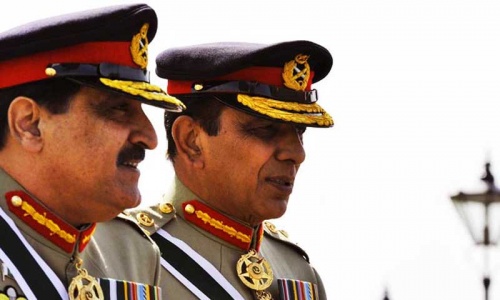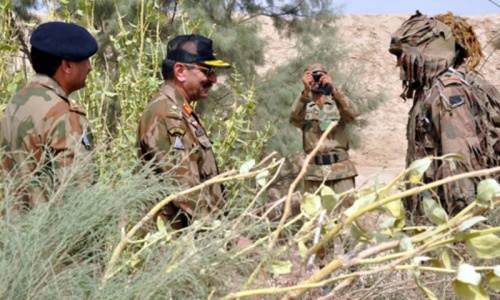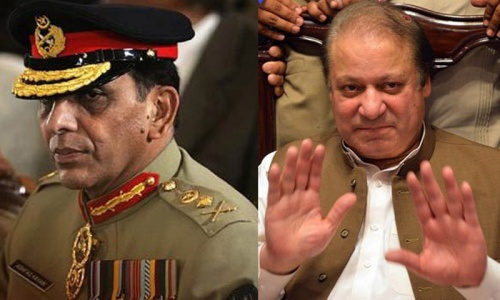ISLAMABAD: One of Pakistan's most powerful men, General Ashfaq Kayani, is likely to stay head of the military with a new title when he steps down as Army Chief next month, taking over some of the duties of his successor, said government and security sources.
The expected move comes at a time when militant violence is on the rise in Pakistan, while tension boils with India over disputed Kashmir and as Prime Minister Nawaz Sharif seeks to shore up a stable government just months into his job.
For the United States, it would mean continuity in Pakistan's approach ahead of a pullout of most foreign troops in neighbouring Afghanistan at the end of 2014.
There has been speculation over who will take over as chief of the Pakistan army, which has ruled the South Asian nation for more than half of its history since independence in 1947, when Kayani steps down.
Sources and aides close to Kayani said Sharif wanted to make him head of a revamped and more powerful Joint Chiefs of Staff Committee (JCSC).
One senior intelligence official also said that Sharif planned to overhaul the JCSC, a largely ceremonial office, into a “central defence body” by restoring its command over the entire military establishment and giving it additional powers.
“The new JCSC chief will be in charge of the nuclear arsenal. He'll decide on action against terrorists,” said the source, adding that new powers included the right to promote, post and transfer key military officers.
“Basically, the JCSC office will be what it was always supposed to be: the overall boss.”
Sharif has a history of bitter relations with the army but is keen to preserve a semblance of continuity at a time when Pakistan is struggling to contain a growing Taliban insurgency.
However, keeping Kayani in a powerful role is likely to entrench the army once again as the real decision maker in Pakistan, with the civilian government playing second fiddle.
Military officials did not return repeated calls seeking comment. The government's spokesman said he also could not comment until an official announcement on Monday when the current JCSC chief is due to step down.
The devil they know
Kayani's post had already been extended for three years in 2010 — to the discontent of some climbing the ranks below him.
Sources close to Sharif said he was unlikely to give him another extension, which would allow movement in the top ranks.
“The JCSC chairmanship is the most likely option for Kayani,” said a close Sharif aide.
“He's an expert on the Pakistani insurgency. He understands the war in Afghanistan.”
Under Kayani's command, the army has launched several offensives against Al Qaeda and Taliban-linked militants in the tribal regions on the Afghan border. In response, militants have extended their attacks to major cities across Pakistan.
Pakistan is trying to bury the legacy of military rule and this year, for the first time, a civilian government completed its full term and stood aside for Sharif's team to be elected.
Sharif has a difficult relationship with the army, and picking Kayani's successor will be a defining moment of his second term. Kayani was once Intelligence Chief to Pervez Musharraf, the army chief who overthrew Sharif in 1999.
Lieutenant General Rashad Mahmood, Chief of General Staff, has emerged as a possible successor and a Kayani favourite.
Other possible candidates include General Tariq Khan, considered pragmatic on US relations, and Lieutenant General Haroon Aslam, the most senior official after Kayani.
“Nawaz wouldn't want an overly strong army chief and if Kayani plans to stick around in uniform, then he would prefer someone close to him,” a senior retired army officer said. “Rashad is the man.”
Either way, Kayani is widely expected to stay on in one form or another.
“He won't simply retire and disappear quietly,” one Western diplomat in Islamabad said.
The relationship with the Americans is also key.
The US has a long-standing alliance with Pakistan, but ties have been strained by US drone strikes that have also led to many civilian casualties in northwestern Pakistan.
“Kayani has a good rapport with the Americans and has worked closely with them in Afghanistan,” the prime minister's aide said. “For Sharif and the US, it's better the devil they know.”














































